Monday, June 2nd marks Shavuot, one of the major festivals in the Jewish calendar. Most years, Christians celebrate Pentecost around the same time. This year it falls on Sunday, June 8th.
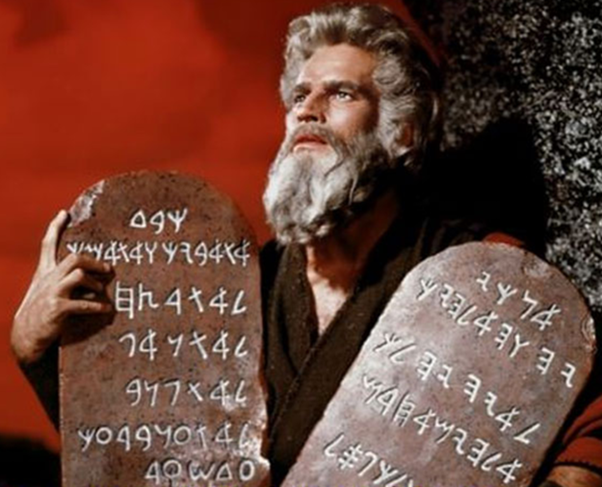
At first glance, these holidays might seem unrelated—different religions, different practices. But dig a little deeper, and we’ll find something beautiful: a shared story about revelation, transformation, and new beginnings.
Shavuot: The Festival of Weeks

Shavuot, which means “weeks” in Hebrew, falls seven weeks after Passover. It began as an agricultural festival—celebrating the first fruits of the harvest—but over time, became deeply connected to a defining moment in Jewish history: the giving of Torah at Mount Sinai.
This is the moment whent he Israelites received not just a set of laws, but a way of life, a covenant—a relationship. Shavuot is often called the “wedding” between God and the Jewish people, complete with imagery of mountains wrapped in smoke, thunder, and divine words etched in stone.
Pentecost: Fifty Days After Easter
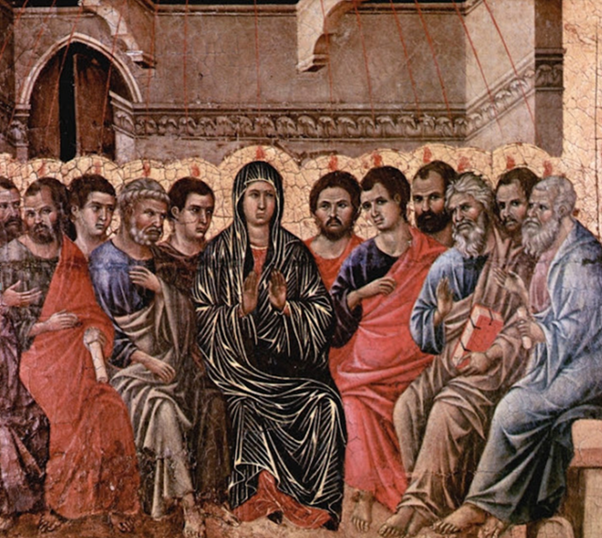
Fast forward to the Christian tradition: Pentecost falls fifty days after Easter (hence the name, from the Greek pentēkostē, meaning “fiftieth”). It marks the moment when the Holy Spirit descended on the early followers of Jesus, empowering them to speak in different languages and begin their mission of sharing the gospel.
This took place in Jerusalem—on the Jewish festival of Shavuot. Jews from all over the known world had gathered for this pilgrimage festival. What happened on that day—a rushing wind, tongues of fire, and inspired speech—echoed the thunder and voice of Sinai, and signaled a new kind of revelation: not on stone tablets, but in human hearts.
Ruth
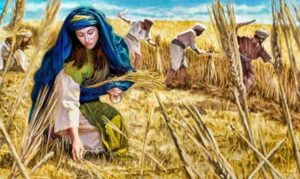
On Shavuot, Ruth is read in synagogue services and studied late into the night because her story reflects its themes: the barley and wheat harvest, the covenant, kindness, inclusion, and devotion. Her story offers a beautiful bridge to themes that resonate with Pentecost.
Ruth is about chesed (loving-kindness), loyalty, and personal covenant—her dedication to Naomi, (“Your people shall be my people, and your God my God”) echoes Israel’s collective covenant with God at Sinai.Her decision to join the people of Israel is often viewed as a personal conversion, paralleling the Israelites’ acceptance of Torah: “We will do and we will hear” (na’aseh v’nishma). Ruth embodies that same spirit of willing, humble acceptance.
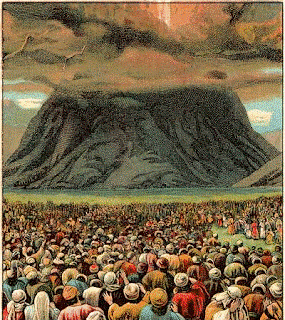
Connections to Pentecost
There are meaningful connections:
- Just as Ruth’s story centres around harvest and gleaning, Pentecost bears witness to a harvest in Jerusalem, when many nations receive the Holy Spirit which falls upon Jews and Gentiles alike—mirroring Ruth’s inclusion into Israel.
- Both Shavuot and Pentecost celebrate a kind of receiving. While Moses descended the mountain bearing God’s Law on tablets of stone, the Holy Spirit descended from heaven upon the early Christians as tongues of flame. Torah is words that shape identity and community for the Jewish people. For Christians, the Spirit is power that transforms and sends people out into the world.
A Shared Thread
Both festivals are rooted in divine generosity. Both speak of being chosen—not in a sense of superiority, but in the sense of responsibility. And both invite people into deeper relationship: with God, with one another, and with the world they are called to serve.
Why This Matters Today
Shavuot and Pentecost are reminders that faith traditions are not sealed boxes, but living stories that sometimes brush up against each other in surprising ways.

So, whether you’re celebrating Shavuot with cheesecake and Torah study, or Pentecost with prayer and praise, please take a moment to marvel at this shared season of spirit and story.
Sign up in the margin to receive my newsletters from Jerusalem and notifications of my blog posts.

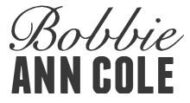
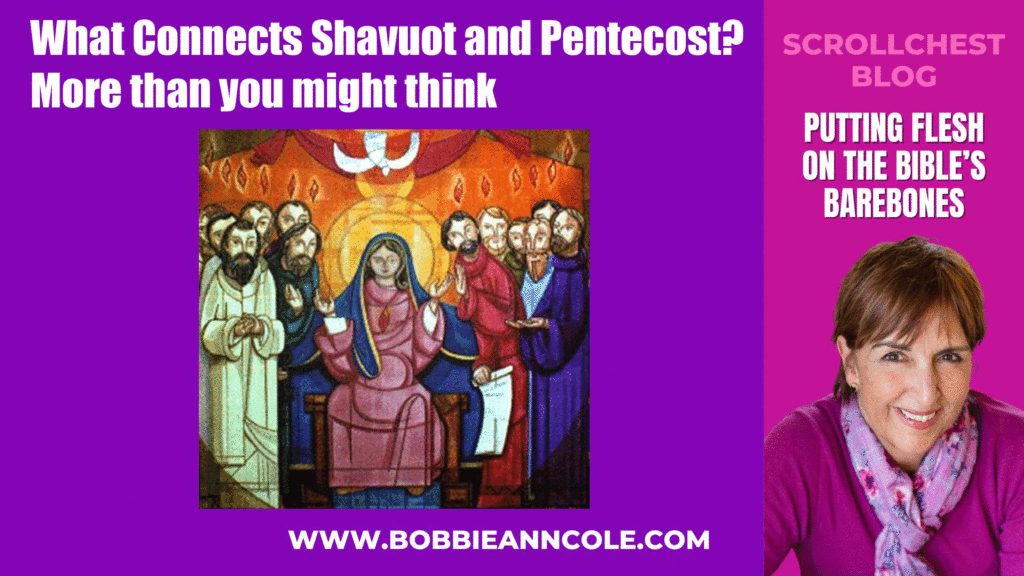
I love this teaching, Bobbie. Thank you. And thank you for your update on the ghostliness there in Jerusalem… Sad. Yet we are so thankful for your safety. We pray for you and Butch and all who live there.